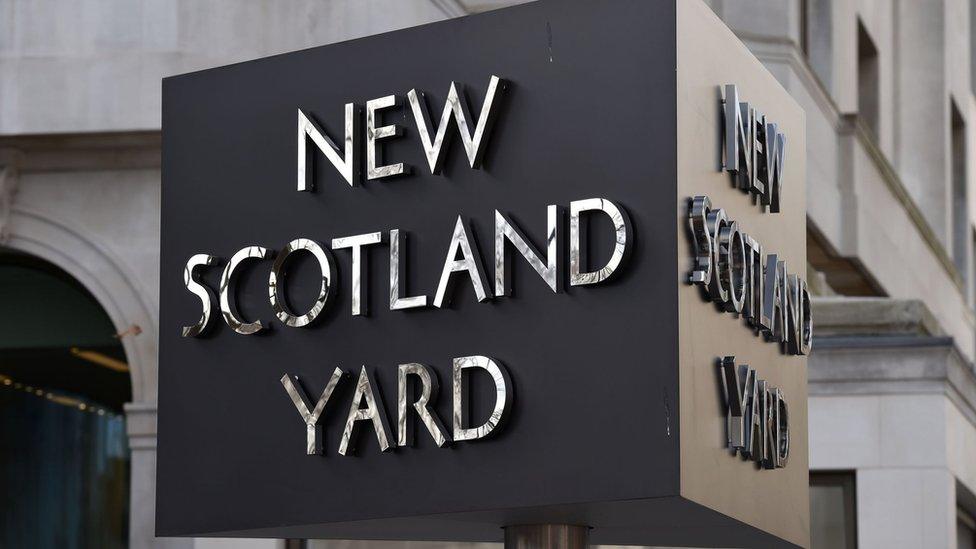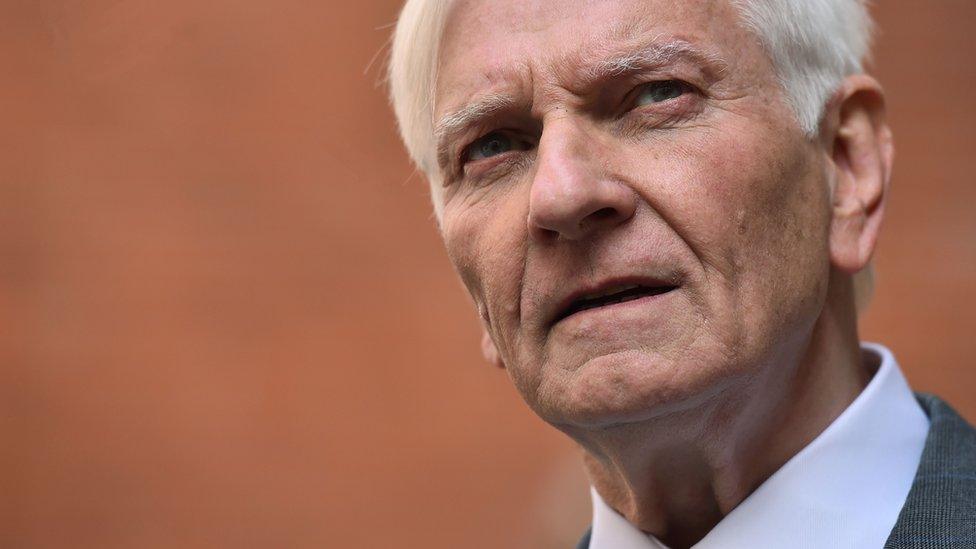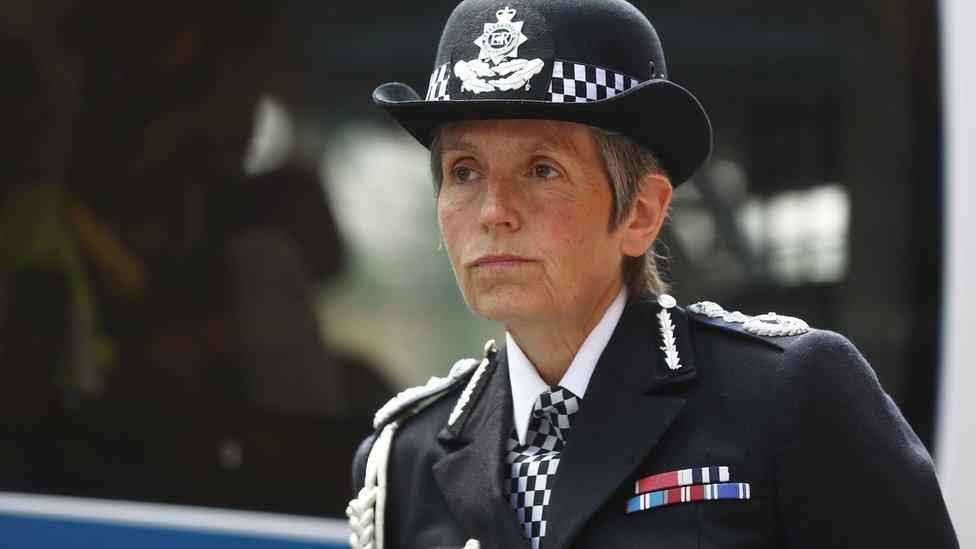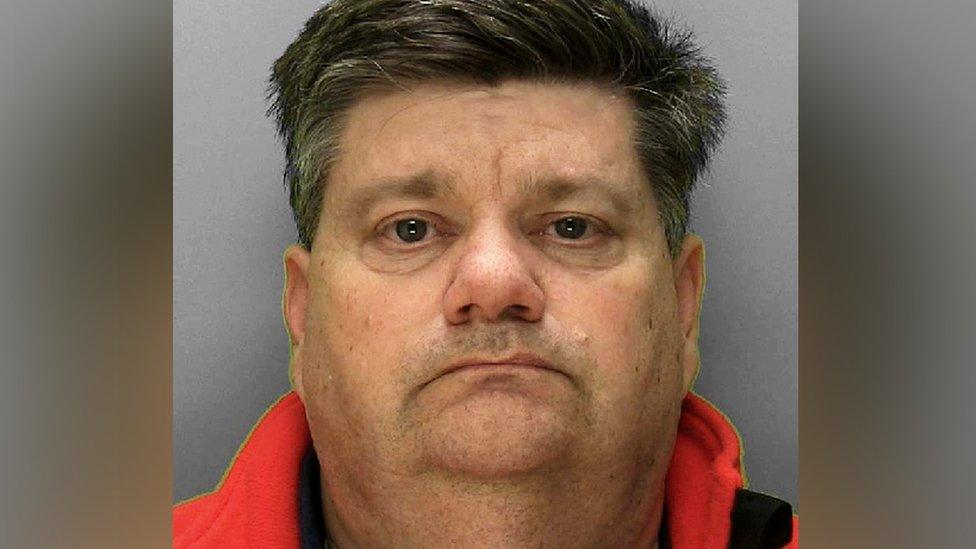Met Police probed for not investigating VIP abuse claims
- Published

Operation Midland lasted 18 months and cost the Met at least £2.5m
The Metropolitan Police has referred itself to the police watchdog again over its investigation into false allegations of a VIP paedophile ring.
The referral relates to why it did not investigate two men - aside from main false accuser Carl Beech - said to have lied to Operation Midland in 2015.
The force ignored a recommendation to investigate the pair made by retired High Court judge Sir Richard Henriques.
Beech is now serving 18 years in prison for perverting the course of justice.
The BBC revealed last year that senior officers ignored Sir Richard's recommendation regarding the men, who are known only as A and B.
The force has now referred itself to the Independent Office for Police Conduct (IOPC), saying it failed to record a decision not to investigate the men "to the standard required".
A spokesman for the IOPC said it will "carefully assess" the Met referral.
The new referral followed a complaint from ex-MP Harvey Proctor, who lost his job and home after being falsely accused.
Previously, the Met referred itself to the watchdog in 2016, and three officers were subsequently investigated for their role in applying for search warrants of suspects' homes. All three were cleared by the IOPC.
Beech - who was known as "Nick" during the police investigation - made false allegations of sexual abuse and murder about a group of MPs, generals and senior figures in the intelligence services in the 1970s and 1980s.
Operation Midland, which was based on Beech's lies, lasted 18 months and cost the Met at least £2.5m.

The new referral followed a complaint from ex-MP Harvey Proctor
In October, Mr Proctor submitted a series of complaints to Northumbria Police - whose inquiry saw Beech jailed for 18 years for perverting the course of justice - but it passed them on to Scotland Yard.
Mr Proctor said the earlier IOPC inquiry had been a "transparent stitch-up" designed to exonerate the officers involved.
The Met dismissed most of the other complaints, but it has now announced that it will be making a new referral.
'Clear evidence'
In a statement, the force said that records showed "clear evidence" of careful consideration and clear rationale for not commencing an investigation into A and B, but "not of the explicit recording of this to the standard required".
It added: "Therefore, a complaint against the MPS [Metropolitan Police Service] will be recorded and, given the understandable public interest in this case, will be voluntarily referred to the Independent Office for Police Conduct".
When the earlier IOPC inquiry into Operation Midland concluded in July that no misconduct had taken place by three officers it led to criticism from Sir Richard Henriques.
He said that a criminal investigation was needed into how a judge had been misled when granting search warrants for the homes of Mr Proctor, D-Day veteran and former chief of the defence staff Lord Bramall, and widow of former home secretary Leon Brittan, Lady Diana Brittan.

Met Police Commissioner Dame Cressida Dick was also referred to the police watchdog last year
It was Sir Richard's damning 2016 report into Operation Midland that recommended the Met refer Carl Beech for investigation by an independent force.
When Beech was subsequently investigated he was found to be a liar, a fraudster, and a paedophile.
But the retired judge also recommended that "offences of attempting to pervert the course of justice be considered in the cases of A and B" and it would be appropriate for another police force to carry out such investigations.
His report revealed that a senior Met officer, Steve Rodhouse, regarded A and B as liars, even at a time when he still regarded Beech as credible.
However, when the Met closed Midland it had referred publicly to the existence of three complainants and said that "officers have not found evidence to prove that they were knowingly misled".
In December, the now Met Police Commisioner Dame Cressida Dick was referred to the police watchdog over whether she should have done more to correct a public statement in 2014 - by a senior detective - that Beech's allegations were "credible and true".
- Published9 October 2019
